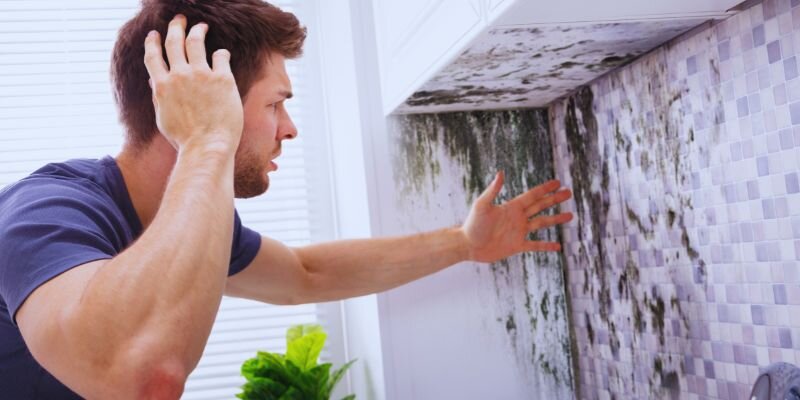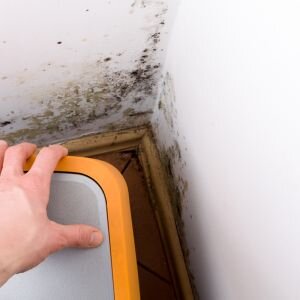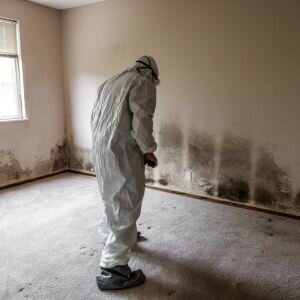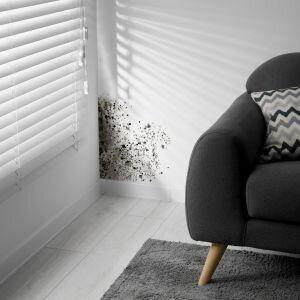
Understanding Mold: Common Types Found in Dallas Homes
When preparing to sell a home in Dallas, understanding mold problems is essential because they can directly impact property value and buyer interest. Mold thrives in humid conditions, which are common in North Texas, and may show up in bathrooms, basements, or anywhere water damage exists.
Sellers don’t need to be experts on mold species, but they should recognize how even minor growth affects real estate transactions. Small mold patches can trigger concerns during inspections, often leading to reduced offers or delayed sales. Buyers frequently assume mold is tied to hidden leaks, poor ventilation, or general neglect.
Being proactive about locating and addressing mold before listing helps prevent price reductions and legal complications. Whether it’s on walls, ceilings, or wood framing, taking steps to remediate—and documenting the process—shows buyers the home has been properly cared for. If you’re searching for a reliable company that buys homes in Dallas, give us a call at (214) 617-1510 for a no-obligation offer.
Identifying Mold Infestations: Signs and Symptoms to Watch For
When selling a mold-affected house in Dallas, spotting infestations early is critical to preventing sales setbacks. Homeowners should look for visible discoloration on walls, ceilings, or floors, which often appear as black, green, or white spots. Persistent musty odors are another strong indicator that mold could be growing out of sight.
People who live in a building who keep coughing, sneezing, or having skin irritations can sometimes be a sign of secret mold exposure. Problems with moisture, like pipes that leak or condensation near windows, make it easy for colonies to grow. People who are selling a house should also look for signs of water damage, such as bent wood, peeling paint, or wallpaper that bubbles.
Catching these warning signs early allows homeowners to take corrective action before listing their property. Being proactive not only strengthens the property’s value but also minimizes last-minute buyer objections. For homeowners wondering what to expect, it may help to review our step-by-step process—we explain exactly how we buy a house so sellers feel more confident from the start.
Health Risks Associated with Mold Exposure in Residential Properties
Mold in a home can be very bad for your health, and this can affect how buyers in Dallas feel about a house. People who are sensitive to mold spores may have asthma attacks, allergic reactions, or long-term breathing problems. Long-term contact has also been linked to immune systems that aren’t working as well and other long-term problems.
Children, seniors, and people with pre-existing conditions are especially vulnerable, which makes these concerns a major factor for families shopping in Dallas. Buyers are much more cautious today and tend to request thorough inspections to ensure mold is not lurking behind walls or under flooring.
For buyers, this means that any mold problems that aren’t fixed can ruin the deal. Cleaning up mold and showing proof that it was fixed reassures potential buyers and helps keep the property’s value. Taking care of health issues not only saves potential tenants but also boosts the visibility of your listing in a very competitive real estate market.
Legal Obligations: Disclosure Requirements for Sellers in Texas
When selling a home with mold or asbestos in Dallas, sellers need to be fully aware of Texas disclosure laws. State law requires that all known property issues, including mold, asbestos, and water damage, be disclosed in the Seller’s Disclosure Notice. This form is not optional, and failing to complete it accurately can lead to legal trouble.
Transparency is key, as undisclosed mold or asbestos problems discovered later could result in lawsuits or demands for compensation. The Texas Property Code emphasizes honesty so that buyers make informed decisions without surprises after closing.
Sellers should maintain records of any property repairs and remediation as well as arrange for inspections to ensure compliance. Providing such proof shows that you are acting in good faith and helps build trust with purchasers. Not only does it meet your legal obligations, but it also develops trust, which makes negotiations easier and lowers the danger of a sale falling through in Dallas’s competitive real estate market.
Assessing the Extent of Mold Damage Before Selling Your Home
Before listing a house in Dallas, it’s important to evaluate how far mold has spread. A certified mold inspector can provide a full assessment, identifying both visible growth and hidden areas behind walls or under flooring.
Along with a visual check, sellers should think about testing the air quality. This method finds germs in the air that could be harmful to people who might buy the house. Once the results are in, homeowners can decide if they need to fix the problem or if a different pricing plan would make more sense.
Sharing inspection results with buyers makes things clear and may help avoid problems in the future. If sellers know exactly what problems there are, they can decide whether to fix them, tell the buyer about them, or change how they sell. If the seller knew this before they put their house on the market, they would be better able to negotiate and protect themselves from possible legal problems in Dallas’s active housing market.
DIY vs Professional Mold Remediation: What Homeowners Need to Know

Homeowners in Dallas often wonder whether they should handle mold removal themselves or hire experts. For minor surface-level mold, DIY methods with protective gear and household cleaners may be sufficient. However, deeper infestations are usually best left to certified professionals.
To guarantee complete mold removal, professional remediation companies bring specialized equipment, safety gear, and tried-and-true methods. This fixes the issue and gives prospective purchasers confidence that the house has been well-maintained. However, do-it-yourself approaches may seem like a better deal at first, but they often end up having the opposite effect and reducing the property’s value due to mold’s return.
Getting several quotes from professionals in Dallas helps sellers find the best mix between cost and effectiveness. Remediation done by an expert can often protect the value of a home over time and speed up the selling process by easing buyers’ concerns.
How Mold Impacts Property Value and Marketability in Dallas Real Estate
Mold has a direct impact on property value in Dallas. Buyers often perceive homes with mold as risky investments because they assume hidden leaks or costly repairs will follow. Even when the mold is contained, the stigma itself can drive down interest.
In a humid region like Dallas, mold concerns are common, but they still heavily influence buyer decisions. Families looking for safe living spaces are particularly cautious and may walk away from properties with visible growth or a history of mold remediation.
This hesitation can make the house sit on the market for longer, which can force buyers to lower their asking prices. Some sellers choose to get the problem fixed by a professional before putting the house on the market, while others tell buyers about the problem and lower the price. In either case, sellers can set realistic goals and go into talks with more knowledge when they know how mold affects a property’s marketability.
Hiring Certified Mold Inspectors: Choosing the Right Expert for Your Home
Hiring a certified mold inspector is a smart step when selling a mold-affected house in Dallas. These experts have the proper training and tools to assess the full extent of contamination, providing sellers with reliable documentation.
Homeowners should check an inspector’s qualifications with groups like the IICRC or NAMRI before hiring them. Potential buyers can be sure that the evaluation is accurate and fair because it is done by professionals who are certified and follow strict industry standards.
Detailed inspection reports serve as strong evidence during negotiations, helping to address buyer concerns about health or structural issues. By having this information available, sellers gain leverage and show that they’ve taken mold concerns seriously. If you have questions on how to sell your house, check out our process on how we buy a house—it explains how we handle properties with these challenges.
Effective Strategies for Negotiating Sales with Potential Buyers
Selling a house with mold issues in Dallas requires clear and honest negotiation. Start by providing inspection reports and, if applicable, remediation receipts to ease buyer concerns. Buyers are more likely to cooperate when they see a seller being upfront about the property’s condition.
You can also make negotiations stronger by offering answers. Some buyers, for instance, pay for the closing costs, offer warranties, or slightly lower the price to cover the costs of repairs. Showing that you can be flexible while still protecting your bottom line will help you get more serious buyers.
Knowing how the Dallas market is changing over time helps sellers keep their hopes in check. Mold doesn’t always kill a deal, but not taking care of it properly often does. Even though there is mold, sellers can still make a deal go through by being honest with buyers, offering written answers, and being willing to give in when necessary.
Financing Options for Buyers Purchasing Homes with Mold Issues
In Dallas, it can be hard to get a mortgage on a house that has mold problems, but there are programs that can help buyers through the process. One popular choice is the FHA 203(k) loan, which lets buyers combine the cost of the house’s purchase and any fixes that need to be done into a single mortgage. This can be very helpful when the costs of fixing the problem are high.
Conventional renovation loans are another route, offering flexibility in terms of loan amounts and interest rates, while still allowing buyers to finance repair work. For veterans, VA renovation loans provide benefits such as no down payment and competitive interest rates, making them a strong option for those eligible.
Because lenders often require that mold issues are addressed before closing, it’s important to work with financial institutions experienced in these types of transactions. Buyers should also confirm they understand what documentation is needed for loan approval. By knowing these financing avenues, buyers can move forward with confidence when purchasing mold-affected homes in Dallas.
Crafting Compelling Listings: Marketing a House with Past Mold Problems
Marketing a house in Dallas that once had mold requires a careful balance of honesty and strategy. Buyers want transparency, but they also want to see the strengths of the property. A strong listing should highlight recent remediation, professional repairs, and preventive upgrades.
Using descriptive language makes a difference. Words such as “mold-free,” “certified inspection,” or “renovated” catch the attention of buyers who are searching for safe homes. Including high-quality photos of updated kitchens, bathrooms, and living areas helps shift the focus toward the property’s positive features.
Another important step is to show proof that the mold was removed. Buyers will feel safer knowing that the problem was fixed by pros and not just with small fixes. Adding information about the Dallas area, like schools, parks, and other services, to that information makes the ad more appealing. When put together, honesty and good marketing can bring in serious buyers, even for homes that have had mold problems in the past.
The Role of Insurance in Covering Mold Remediation Costs

Insurance coverage can play a key role in whether a homeowner can afford remediation before listing a Dallas property. Standard policies often provide limited mold coverage, and typically only when mold results from a covered peril such as a burst pipe or storm damage. For this reason, many sellers discover mold issues aren’t fully covered unless they purchased specific endorsements.
Working with an experienced insurance agent helps clarify exactly what your policy includes. Detailed documentation, such as photographs, professional assessments, and repair estimates, is vital for maximizing claim potential. Without clear records, insurers may deny or reduce coverage amounts.
Even though insurance might not always cover the full cost of repairs, any help can make out-of-pocket costs a lot lower. When sellers use their insurance well, it’s often easier for them to get their home in order before putting it on the market. Taking care of these costs ahead of time shows buyers that the house is safe and well-kept.
Understanding Buyer Concerns and Addressing Questions About Mold
There are a lot of instant worries that potential buyers have about homes that have mold problems. Concerns commonly held include possible health risks, damage to buildings, and the high cost of fixing issues should they come up again. Understanding these worries and directly handling them is very important for sellers.
Providing documentation of remediation is a great approach to decrease hesitancy. Verification documents such as inspection reports, before and after images, and work warranties all contribute to building trust. A seller’s explanation of the measures taken to enhance air quality, such as the use of HEPA filters or the installation of suitable ventilation systems, is also highly appreciated by buyers.
Another helpful tactic is to educate buyers about prevention. Discussing how to manage humidity levels or maintain proper ventilation shows you are committed to the property’s long-term safety. This level of transparency and communication makes negotiations smoother and helps ensure buyers feel confident about moving forward. As trusted cash home buyers in Allen, we make fair cash offers, take care of the paperwork, and close on your timeline.
Preparing Your Home for Showings After Mold Remediation
Once remediation is complete, preparing the property for showings in Dallas is the next critical step. Buyers want reassurance that the problem has been fully resolved, so attention to detail matters. Start by ensuring all areas previously impacted are thoroughly restored and freshly painted with mold-resistant coatings.
Getting better home air quality is also very important. Putting air purifiers and HEPA filters in your HVAC system can help get rid of smells that won’t go away and give buyers confidence in the safety of the home. Bringing attention to these changes during walks or in marketing materials reassures buyers that the home has not only been fixed but will also be safe from future problems.
Staging is equally important. Declutter the home, add inviting lighting, and incorporate small touches like fresh flowers to create a welcoming feel. By presenting a clean, fresh, and healthy space, you maximize your chances of receiving strong offers even on a property that once struggled with mold.
The Importance of Air Quality Testing Before Listing Your Property
Conducting air quality testing before listing is one of the smartest steps a seller can take. This testing identifies the level of mold spores in the air, giving a clear picture of whether remediation has been successful. Buyers are increasingly aware of indoor air safety, making this an important selling point.
A professional air quality report can be shared with prospective buyers during showings or negotiations. This not only demonstrates transparency but also builds trust that the seller has taken extra steps to ensure the home is safe. Providing a clean bill of health can distinguish your property from others on the market.
Air quality testing also benefits sellers directly. It provides peace of mind that mold has been effectively managed and helps avoid disputes after the sale. In Dallas’s competitive housing market, going the extra mile with testing can result in smoother negotiations and possibly higher offers.
Local Regulations and Building Codes Concerning Mold Mitigation
In Dallas, sellers must pay attention to local regulations and state requirements when dealing with mold. Texas follows the Texas Mold Assessment and Remediation Rules (TMARR), which require licensed professionals for certain levels of remediation. Failing to follow these guidelines could cause delays or even liability issues after a sale.
Also, sellers are required by law to tell potential buyers about any mold problems they know about. This includes problems that are happening now or in the past, such as water damage that could cause mold. Following these rules will not only keep you legal, but it will also show buyers that you are treating the sale with care.
Hiring qualified professionals makes sure that the cleanup follows both city and state rules. Writing down the steps saves sellers even more in case questions come up later. Homeowners can avoid problems and improve their standing in Dallas’s very competitive real estate market by strictly following the rules.
Success Stories: Case Studies of Selling Homes with Previous Mold Issues
Success stories prove that homes with mold issues can still sell in Dallas when handled properly. One homeowner invested in comprehensive remediation and kept all documents, which reassured buyers and resulted in multiple offers.
In another case, it was important to point out preventative changes like better ventilation and waterproofing. These steps let buyers know that the issue had been fixed and would probably not happen again. Being honest during open houses and making changes that could be seen, like painting the inside of the house, helped build trust.
Some sellers also got better results when they worked with real estate agents who knew how to market homes that had special problems. These sellers found interested buyers who liked an updated and safe home by advertising it honestly but with confidence. In other cases, easy staging techniques, like putting the focus on clean, bright spaces, took attention away from problems that happened in the past.
These examples show that even homes with mold problems can do well in Dallas’s real estate market with the right plans, such as fixing the problem, keeping records, and advertising the house.
Partnering with Real Estate Agents Experienced in Selling Houses with Defects

When selling a mold-impacted house in the competitive Dallas real estate market, partnering with a real estate agent experienced in handling properties with defects can make the process much smoother. These agents understand how to manage the unique challenges that come with homes that have mold or other condition issues. They know what buyers are looking for, and they can tailor marketing strategies that highlight potential value rather than letting the defects overshadow the property.
One of the greatest benefits of working with these professionals is their ability to set a realistic price that balances the home’s current state with its market potential. Agents who specialize in such sales also bring strong connections to contractors, inspectors, and remediation experts who can provide reliable guidance on addressing mold concerns before listing.
By using this knowledge, you get more than just an agent. You get a partner who will make sure your property is shown in the best light, giving you the edge you need to fight in Dallas’s real estate market. This method helps keep things from going wrong and speeds up the whole process.
Future Prevention Tips to Avoid Recurrence of Mold After Sale
To protect against mold coming back after the sale of a home in Dallas, the key is consistent moisture control and proper upkeep. High-humidity areas such as bathrooms, kitchens, and basements should have adequate ventilation, as this prevents dampness from settling in. Dehumidifiers can also help maintain balanced humidity levels throughout the property. Regular HVAC maintenance is another critical step, as clogged or poorly running systems often contribute to excess moisture.
Water intrusion from plumbing or roofing leaks is another frequent culprit of mold growth. Sellers who take the time to seal leaks quickly and use mold-resistant materials during any renovations reduce risks for future issues. Educating new homeowners about the importance of routine inspections and simple preventive habits can go a long way toward ensuring the house remains in top condition.
By being proactive, both sellers and buyers benefit. These strategies maintain the property’s value, reduce costly problems down the road, and build peace of mind for everyone involved in Dallas’s competitive housing market.
Can You Sell a House with Mold in Texas?
Selling a house with mold in Texas, especially in Dallas, is possible when handled with careful planning. The process begins with a comprehensive mold inspection to determine the scope of the issue. After identifying problem areas, the next step is hiring licensed mold remediation services to treat and remove the mold. While this can feel like an additional expense, it often speeds up the selling process and prevents larger negotiations later.
According to Texas law, sellers must tell buyers about any known mold problems. Being honest with buyers helps build trust. A big part is also played by price. Setting a fair price that takes into account the cost of fixes can bring in buyers, especially those looking for investment properties or homes that need work. It is best to work with an experienced real estate person because they know how to sell homes in Dallas that have been affected by mold.
By combining transparency, strategic pricing, and professional guidance, sellers can successfully navigate mold-related challenges and still close on their property with confidence.
What Happens If You Sell a House with Mold?
When you sell a house with mold in Dallas, there are important implications to consider. Mold can affect property value and buyer interest, but it also brings legal obligations. Texas property disclosure laws require sellers to be upfront about any mold concerns. Failure to disclose could result in potential lawsuits or disputes later in the process.
Getting rid of mold before selling usually makes it easier to get serious buyers. The best way to make sure the problem is fixed correctly and get proof that the property is mold-free is to have a professional do the work. Once the repairs are done, making price changes that reflect the improvements will help the home sell faster.
Marketing strategies that highlight mold-free certifications and recent upgrades are also powerful tools for drawing in buyers who want peace of mind. Ultimately, working with a real estate agent who understands mold-related challenges in Dallas provides guidance on pricing, negotiation, and legal compliance, ensuring smoother sales outcomes and minimizing risk.
Will a House Pass an Inspection with Mold?
During a home inspection, which is a standard step in the Dallas real estate market, mold is often a cause for worry. Mold is likely to be marked as a problem by inspectors because it is thought to be both harmful to health and a problem with the building itself. Because of this, a house that has mold that hasn’t been fixed usually has a hard time passing an inspection.
To improve your chances, it’s essential to invest in professional remediation before the home is listed for sale. Certified inspectors and remediation specialists can assess the extent of the mold and ensure it is safely removed. Addressing these issues ahead of time not only improves inspection results but also reassures buyers that the property has been thoroughly treated.
In a market like Dallas, where humidity can make mold growth a recurring issue, buyers want reassurance that the home is safe. Proactive remediation builds confidence, smooths negotiations, and helps keep the sale on track while preserving property value.
Will Mold Fail an Appraisal?
During an appraisal, mold issues can directly affect the outcome. Appraisers evaluate both the physical condition and market value of the home, and visible mold or mold damage can reduce the appraisal value significantly. In some cases, if the mold is extensive and raises safety or structural concerns, the property may not pass appraisal requirements at all.
Lenders depend a lot on appraisal results before giving loans, so this can make things harder for buyers who need financing. So, people in Dallas who want to sell their home should think about fixing any mold issues before putting it on the market. Hiring professional cleanup services and keeping records of the work done shows buyers and analysts that the problem has been fixed.
By showing clear proof of remediation and improvements, sellers improve their chances of meeting appraisal standards and securing stronger offers. Taking care of mold upfront not only protects the sale but also builds buyer confidence, making the process less stressful and more successful.
Need to sell your home quickly and hassle-free? Whether you’re trying to avoid costly repairs, skip realtor commissions, or just want a straightforward sale, A Cash Home Buyer can help. We make the process easy—reach out today to get started!
Helpful Dallas Blog Articles
- Selling A Dallas, TX, Home With Unpermitted Work
- Closing Costs For Selling A Home Without A Realtor In Dallas, TX
- How To Sell A House With A Lien In Dallas, TX
- Home Sales In Dallas, TX, With A Pending Lawsuit
- For Selling A Mold-impacted House In Dallas, TX, Real Estate
- Selling a House With Asbestos in Dallas, TX
- Selling Your Investment Property In Dallas Real Estate Market
- How To Sell Your Parents’ House In Dallas, TX, Using Power Of Attorney
- Sell Your Dallas, TX, Home With Tenants Still In Place
- Essential Guide To Capital Gains Tax On Home Sales In Dallas, TX

| REAL ESTATE LAW | INDOOR MOLD | INSURER | INSURANCE COMPANY | INSURANCE CLAIM | TOXIC MOLDS |
| CROSS-CONTAMINATION | CONTAMINATION | VENTILATION SYSTEMS | MORTGAGE LENDING | MORTGAGE LENDERS | MONEY |
| TOXIC | ATTORNEY | LAWYER | INSURANCE POLICIES | DRYWALL | CRAWL SPACES |
| CASH | INSULATION | ATTICS | ALLERGENIC | ALLERGENS | SINKS |
| ROOT | NON-POROUS | POROUS | PATHOGENIC | LIABILITY | |
| CLIMATIC CONDITIONS | BLEACH | AIR FILTRATION |
